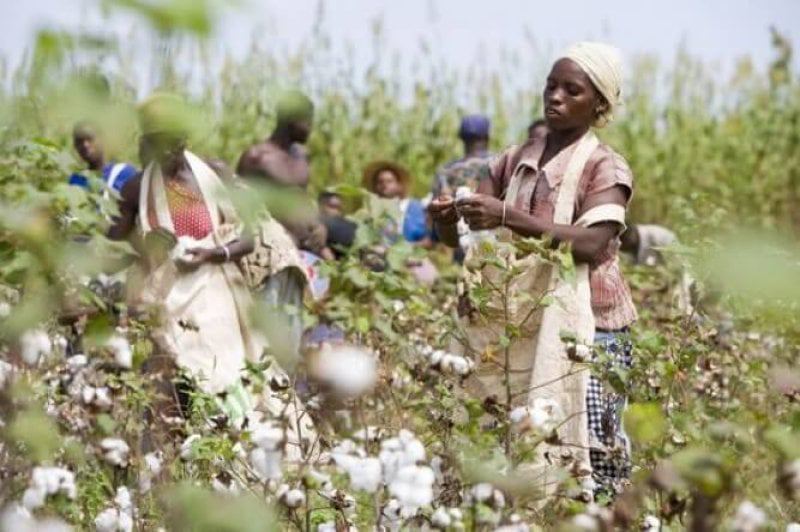Ethiopian geneticist defends his country’s decision to approve GMO insect-resistant Bt cotton
Ethiopian geneticist defends his country’s decision to approve GMO insect-resistant Bt cotton


A recent report by the United States Department of Agriculture (USDA) Foreign Agricultural Service welcoming the Government of Ethiopia’s (GOE) approval of commercial cultivation of genetically modified (GM) cotton and confined field trail on GM maize has ignited a public debate over deployment of GM seeds.
[Editor’s note: Grum Gebreyesus is a postdoctoral researcher at the Center for Quantitative Genetics and Genomics of Aarhus University in Denmark.]
…
Proponents of GM argue that adoption can lead to increased yields, decreased insecticide applications, reduced drudgery, and the use of environmentally friendly herbicides.
…
[A] meta-study published in 2014 estimates a 22% increase in global yield from GM crops while reducing pesticide …. usage by 37% and environmental impact (insecticide and herbicide use) by 18%. For countries with foreign currency bottlenecks like Ethiopia, reduced usage of inputs such as pesticide, insecticide, and herbicide translate to substantial foreign currency savings.…
An additional misconception that should be untangled from the ongoing conversation is one that alludes to [Ethiopia’s] approval of a GM crop as a “breakaway” position from an “African consensus” on the ban against GM …. GM crops have been commercially cultivated in Africa since as early as 1998. Commercial cultivation in South Africa begun in 1998 reaching 2.1 million hectares of land covered with biotech maize, including Bt maize, by 2014.
Burkina Faso and Egypt followed in 2008. Sudan initiated commercial GM cotton in 2012 and by the end of 2018 had 0.2 million hectares of land covered with biotech crops, a significant part of which was Bt cotton. Other African countries were conducting trials on GM crops with approvals for commercial cultivation widely expected soon. Kenya, for instance, had already approved field trials for Bt maize back in 2016. In 2019, the Kenyan government further granted approval for Bt cotton cultivation, in a move welcomed by its agricultural research community.
There appears to be a tendency to equate The Cartagena Protocol on Biosafety, adopted on 29th January 2000, as a consensus on a collective ban against GMOs. The Protocol is an international agreement which aims to ensure the safe handling, transport, and use of living modified organisms (LMOs) resulting from modern biotechnology on the precautionary principle (PP). Opponents often invoke the PP to justify a ban on GM, but proponents see these as selective applications of the PP.
Read the original post

 | Videos | More... |

Video: Nuclear energy will destroy us? Global warming is an existential threat? Chemicals are massacring bees? Donate to the Green Industrial Complex!
 | Bees & Pollinators | More... |

GLP podcast: Science journalism is a mess. Here’s how to fix it

Mosquito massacre: Can we safely tackle malaria with a CRISPR gene drive?

Are we facing an ‘Insect Apocalypse’ caused by ‘intensive, industrial’ farming and agricultural chemicals? The media say yes; Science says ‘no’
 | Infographics | More... |

Infographic: Global regulatory and health research agencies on whether glyphosate causes cancer
 | GMO FAQs | More... |

Why is there controversy over GMO foods but not GMO drugs?

How are GMOs labeled around the world?

How does genetic engineering differ from conventional breeding?
 | GLP Profiles | More... |

Alex Jones: Right-wing conspiracy theorist stokes fear of GMOs, pesticides to sell ‘health supplements’




 California, Washington, Oregon forge immunization alliance to safeguard vaccine access against federal undermining
California, Washington, Oregon forge immunization alliance to safeguard vaccine access against federal undermining Fighting deforestation with CO2: Biotechnology breakthrough creates sustainable palm oil alternative for cosmetics
Fighting deforestation with CO2: Biotechnology breakthrough creates sustainable palm oil alternative for cosmetics Trust issues: What happens when therapists use ChatGPT?
Trust issues: What happens when therapists use ChatGPT? Viewpoint — Fact checking MAHA mythmakers: How wellness influencers and RFK, Jr. undermine American science and health
Viewpoint — Fact checking MAHA mythmakers: How wellness influencers and RFK, Jr. undermine American science and health 30-year-old tomato line shows genetic resistance to devastating virus
30-year-old tomato line shows genetic resistance to devastating virus Viewpoint: Video — Big Solar is gobbling up productive agricultural land and hurting farmers yet providing little energy or sustainabilty gains
Viewpoint: Video — Big Solar is gobbling up productive agricultural land and hurting farmers yet providing little energy or sustainabilty gains The free-range chicken dilemma: Better for birds, but with substantial costs
The free-range chicken dilemma: Better for birds, but with substantial costs ‘You have to treat the brain first’:Rethinking chronic pain with Sanjay Gupta
‘You have to treat the brain first’:Rethinking chronic pain with Sanjay Gupta
